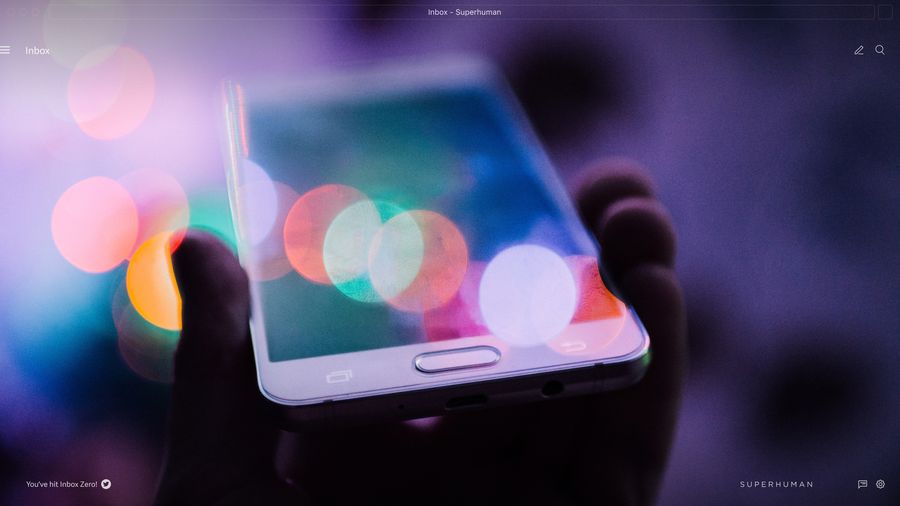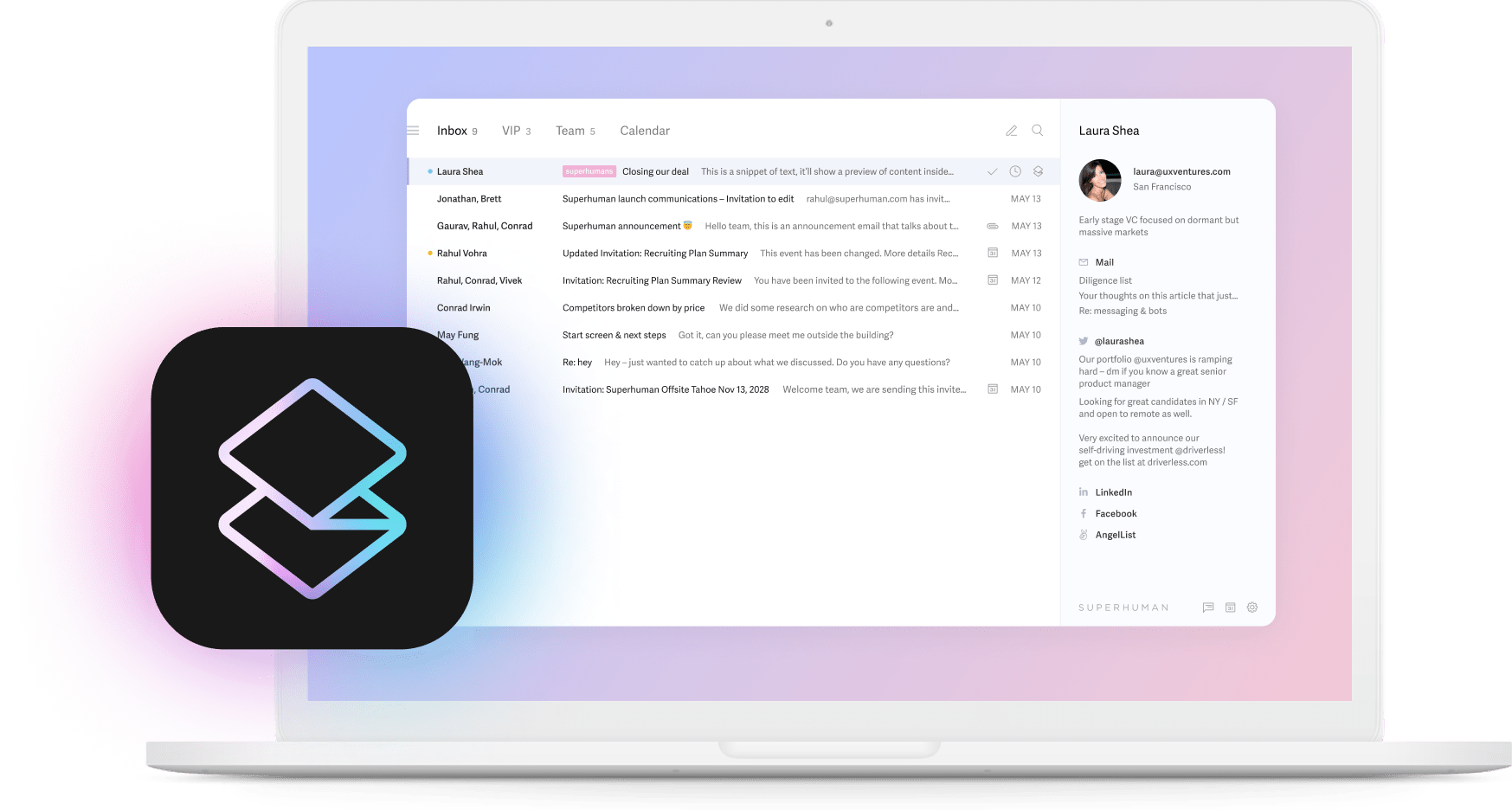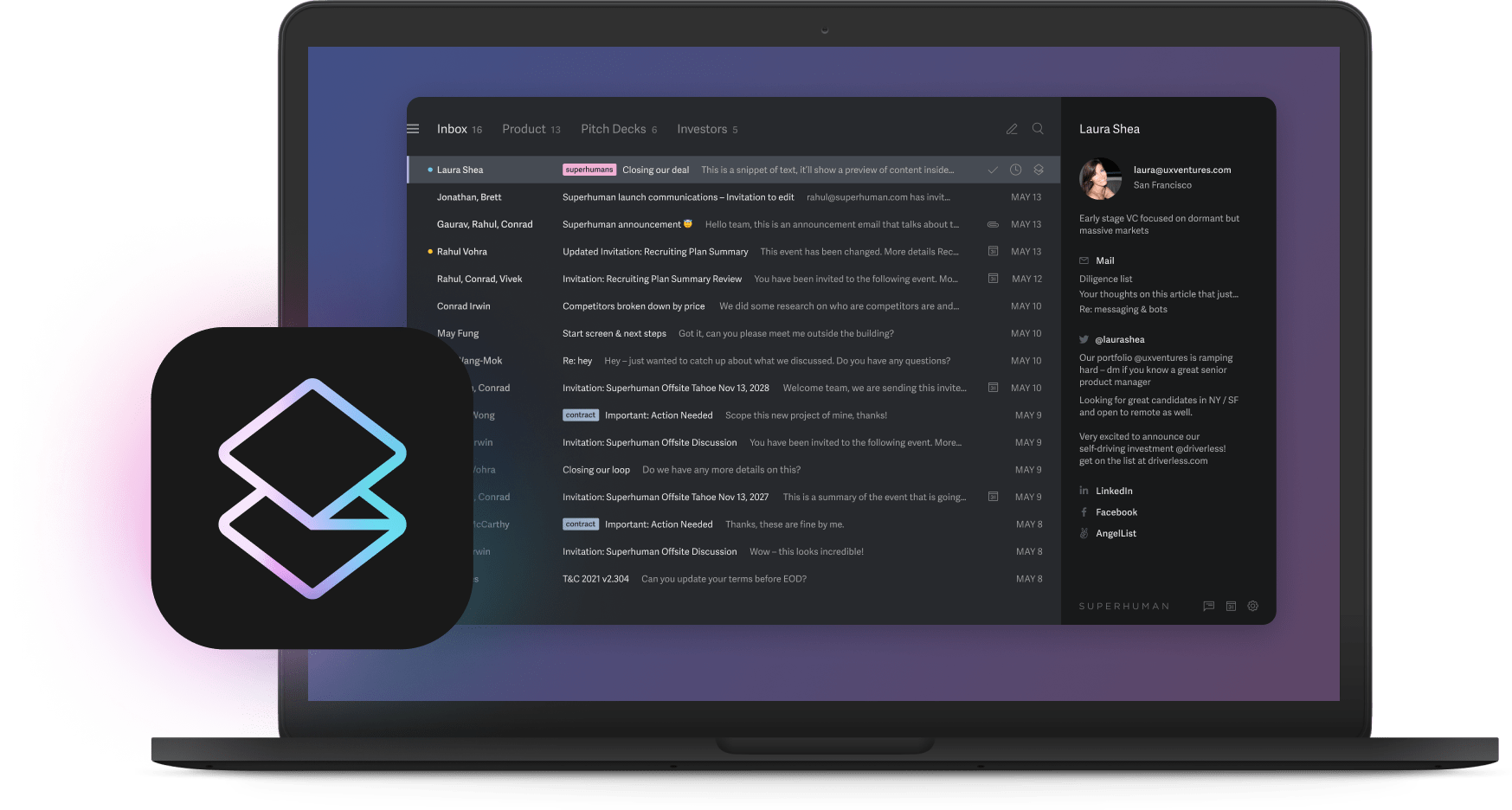
Nearly 90% of remote workers report being distracted while at work.
When we surveyed remote workers for our State of Your Inbox Study last year, we weren't surprised to see so many people report being distracted during the workday. The things that distracted them were varied: family members and roommates, but also work communications, social media apps, text messages and phone calls, keeping up with the news…
The surprising part wasn't that people faced distractions — distractions have always existed both in and out of the office. But the most striking finding was how many distractions weren't part of respondents' physical spaces — they were purely digital. Digital distractions are not only on the rise, but they're actually becoming louder and more demanding of our attention. They're also becoming more ubiquitous, as so much of our lives and work moves into digital spaces.
Digital distractions are making us "more distracted, distant and drained", according to recent research. But is there any way to prevent them? Can digital distractions — and their negative effects — be conquered? Read on to learn more.
Digital distractions are getting louder and harder to ignore
A study by the American Psychological Association earlier this year found that digital distractions have the capacity to significantly reduce our enjoyment of fun activities, like eating out with friends.
The study found that people who shared a meal with friends, but had their phone out while eating, reported feeling distracted and enjoying the experience less than those who ate with friends while their digital devices stayed out of reach.
"People who were allowed to use their phones during dinner had more trouble staying present in the moment," explained the study's lead author, Ryan Dwyer, MA, of the University of British Columbia.
"Decades of research on happiness tell us that engaging positively with others is critical for our well-being. Modern technology may be wonderful, but it can easily sidetrack us and take away from the special moments we have with friends and family in person."
Even more shockingly, the effects of digital distractions can linger, even after we put our devices down.
A second part of the study showed that people reported feeling more distracted during face-to-face interactions if they had used their phone in the 15 minutes prior. They also said they were less interested in face-to-face time and got less enjoyment from it than those who hadn't used their phones recently.
"Just ignore your phone!" you might think. But it's not that easy…
In his book Irresistible, author Adam Alter explores our relationships with smartphones, social media, and other digital technologies from a psychological perspective. Hise research shows that many people form a "behavioral addiction" to technology — an addiction with a behavioral rather than a chemical component.
What makes Alter's research even more urgent is the revelation that technologies like mobile phones, Facebook, and Twitter were specifically engineered to be addictive. They give their users intermittent positive reinforcement in the form of notifications, likes, and retweets — very similar to how casino games hook players with intermittent small wins, even as they're suffering a net loss over the entire course of the gaming session.
"Users were gambling every time they shared a photo, web link, or status update," Alter wrote of Facebook introducing the "Like" button in 2009. He continued:
"A post with zero likes wasn't just privately painful, but also a kind of public condemnation: either you didn't have enough online friends, or, worse still, your online friends weren't impressed."
Work communication is one of the top digital distractions
Alter's research focuses on social media for a reason: digital communications are some of the top distractions we face in our increasingly connected world. In fact, during the State of Your Inbox study, remote workers most frequently chose "work communications such as email or Teams/Slack" as their top distractions during work.
A 2019 study by Workfront found that knowledge workers are interrupted by "email, instant messages and other digital distractions" 14 times per day on average. And the latest research from RescueTime showed that the average knowledge worker checks communication apps every six minutes.
RescueTime's study also showed that 40 minutes is the longest amount of time the average knowledge worker can go without checking their email. 40% of people never get 30 minutes of work time uninterrupted by communication tools.
9 tips for banishing (or at least managing) digital distractions
This is the digital age. It's extremely difficult (if not impossible!) to eliminate digital distractions altogether. But you can take steps to minimize them...
Below are some tips, tricks, and tools that can help avoid digital distractions and minimize the negative impact they have on your focus and productivity.
1. Manage your notifications
The first tip might be the most obvious one — managing notifications can be a great step toward avoiding the seemingly constant barrage of digital distractions we all face every day.
Notifications for communication apps, including your email and social media, can be adjusted in their settings. Smartphone settings also offer customization that can help you turn off notifications, or at least limit them to the ones you really need.
Another way to help cut down on notification is entirely removing the ones that are just creating noise. Delete apps that you never use. Unsubscribe from mailing lists you don't read. And when you need to focus on your work free of any lingering distractions, make use of the "silent" or "do not disturb" features on your devices to put a pause on incoming alerts.


2. Allow yourself to take "distraction breaks"
Going the entire workday without checking on anything distracting isn't realistic for most people. So it can help to use Pomodoro or a similar method of building in small breaks throughout your day, then using those breaks to check social media, your phone, and other digital distractions.
This can help eliminate the FOMO (fear of missing out) that comes from not having access to digital distractions for the entire day. It can also help you focus more deeply on your work in between your distraction breaks — when you know you'll be able to check your notifications in 20 minutes, for example, it often becomes easier to put them out of your mind for the time being and focus until your break time arrives.
3. Remove devices from your workspace
This tip won't work for everyone, as many people actually use devices like their smartphone for their work. But if there are any devices that might pose a distraction that you can remove from your workspace, do it!
Put video game consoles out of view of your desk. Put your e-reader away in a drawer until work is done for the day. And if you don't actually need your smartphone to do your job, leave it in another room while you're "at work" (even if work is just in the living room while your phone stays in the bedroom). If your phone is part of your workday, consider removing apps like social media and games, or at least putting them in a folder off your home screen so they're out of sight.
4. Calendar block your day
A popular time management tool that can always work well for conquering distractions is calendar blocking: the practice of scheduling your entire day into "blocks" for certain tasks, meetings, deep work, and even personal chores.
Calendar blocking is great for avoiding distractions because it encourages scheduling deep work as part of your day. That way, even if you can't completely remove distracting devices from your workspace altogether, you can block off specific times that you put them away and remove the temptation of multitasking, mindless scrolling, or checking that new notification that just popped up.
5. Create communication boundaries
The digital world we live in feels like it demands near-constant connectivity. But you can combat that by creating clear boundaries with friends, family, and colleagues about communication during the workday.
For example, instead of being on Slack the entire time you're working, set some designated times for check-ins and answering DMs and notifications.
Instead of keeping your email inbox open in a browser tab all day long, check your email twice a day — once in the morning, and once in the evening. Or, use Superhuman — it's designed to improve focus and reduce time in email.
Once you've decided on communication boundaries to help you avoid distractions, communicate them with your team and other people around you, so they know what to expect.
6. Make an effort pact
In his book Indistractable: How to Control Your Attention and Choose Your Life, behavioral expert Nir Eyal lays out four top tips for avoiding distractions in their entirety, all the time.
One of his best tips is to create an effort pact: an agreement with yourself to stick to boundaries, time management techniques, and other habit changes that are meant to help you stay focused during the workday. He explains:
"They are promises that we make with ourselves, with somebody else, or with a technology, to prevent us from getting distracted.
It's the firewall against distraction — the last line of defense."
7. Use distraction-blocking tools
There are tons of GTD apps and productivity tools meant to help you stay focused and avoid distractions. Here are a few that we love:
- OneTab: Converts your browser tabs into a single page of links, then restores the tabs as needed. This is especially helpful for those of us who treat open tabs like our to-do list, amassing dozens of them on busy days (author sheepishly raises her hand).
- Forest: Helps you stay focused by turning uninterrupted work time into a game. Every time you want to focus on a task, open Forest and plant a tree. The tree will only grow if you leave your phone alone. Over time, your trees grow into a forest that represents hours of cumulative deep work.
- Pocket: Allows you to save articles that you want to read later. This is especially useful for those whose work requires online research. Instead of being distracted by an interesting headline, you can just add it to Pocket and revisit it after work.
Further Reading: 10 apps to help you focus at work
8. Schedule social posts ahead of time
Giving up social media altogether can eliminate a ton of digital distractions — but it's not always a practical solution. For anyone whose work involves social media, staying on-task while staring down a feed full of unread updates can be a tall order.
Popping in and out of social media sites to do tasks can result in a lot of time wasted. Instead, schedule your social posts in batches ahead of time. Pro tip: while this works great when you're posting social media updates for work, you can do it for personal updates too, and reclaim some of the time you spend scrolling.
9. Unplug completely for deep work
When's the last time you spent any portion of your work day not in front of a screen? What about offline?
It's not possible for every role, or all the time. But whenever you can, allow yourself a period of time to do deep work while entirely unplugged. That means, at the very least, no smartphone or wifi. Even better if you can manage to power through some tasks off screens entirely.
Conquering digital distractions isn't easy…
…but it's a worthy goal. With these tips, you can be less distracted and more focused, purposeful, and productive:
- Be purposeful with your notifications
- Allow time for "distraction breaks"
- Adopt Zero Inbox to streamline email inboxes.
- Remove distracting devices from your workspace
- Embrace productivity tools to block distractions
- Use calendar blocking
- Create communication boundaries
- Schedule social posts in batches
- Unplug when you can to practice deep work




